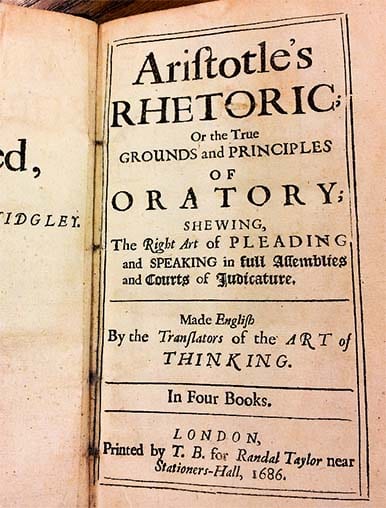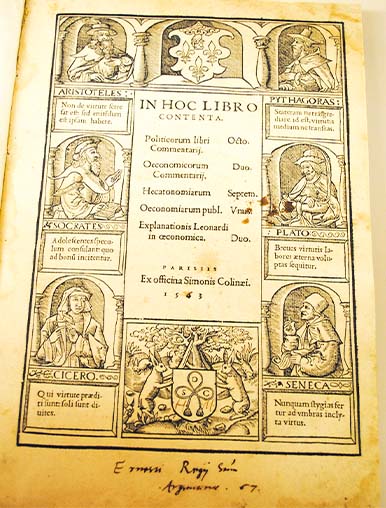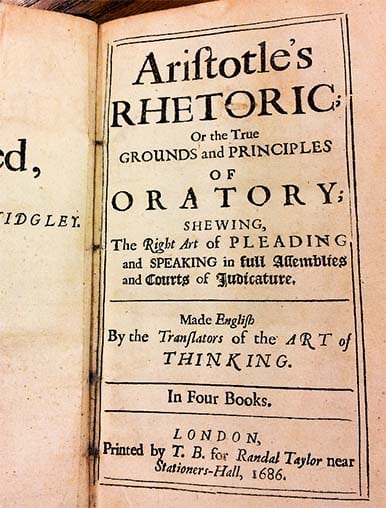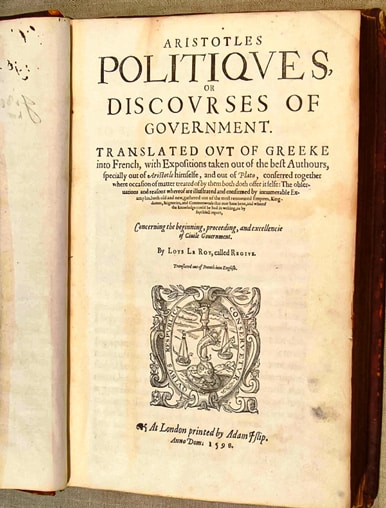REMNANT TRUST COLLECTION
Aristotle
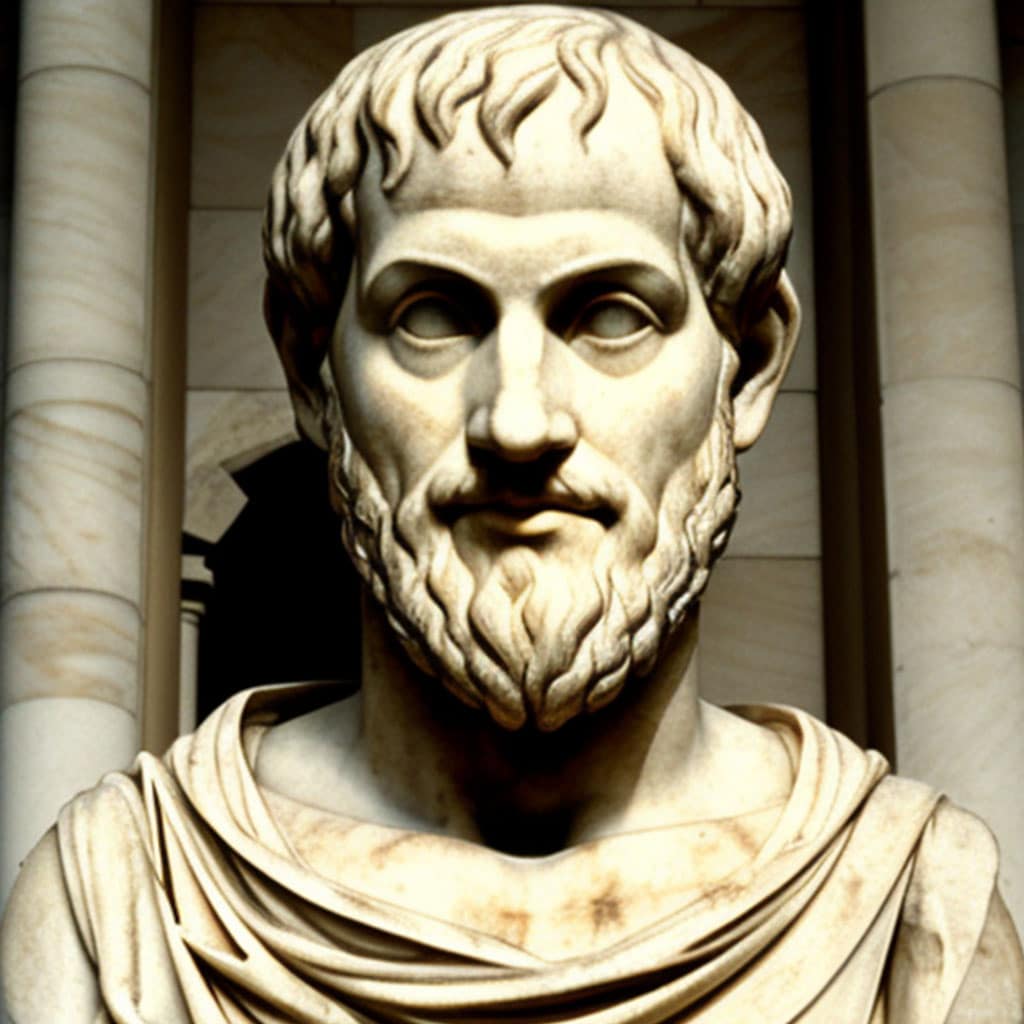
“Democracy arises out of the notion that those who are equal in any respect are equal in all respects; because men are equally free, they claim to be absolutely equal.”
– Aristotle
b. 384 BCE – d. 322 BCE
Aristotle is one of the two supporting pillars of Western Philosophy—the other being his teacher, Plato. Aristotle is also important historically as the tutor of Alexander the Great. Aristotle’s legacy to Western Civilization rests on his vast corpus of philosophical writings on ethics, politics, physics, metaphysics, natural science, the arts, and logic. No other philosopher has had a greater or more lasting impact.
Aristotle’s combined works could—by themselves—serve as an encyclopedia of Ancient Greek knowledge. As a sidebar, certainly relevant to our interests, Aristotle also became known as the world’s first systematic book collector, amassing over his lifetime a great library. Aristotle conceives the principal concern of ethics to be the well-being of individuals in a society: good actions and virtue being critical to the common good of a state and the well-lived lives of the individuals constituting that state. The studying of ethics is essential to appreciate and control the ways that friendship, pleasure, decency, virtue and honor fit into and play their respective roles in well-ordered societies and the lives of happy individuals. Although Aristotle is indebted to Plato’s general moral philosophy, the systematic development and the focus of Aristotle’s treatises are unprecedented. Throughout these treatises Aristotle insists on the real-life necessity of learning and practicing these good habits. Ethics is a field of philosophy that is not merely theoretical, but essential to put into practice for the sake of happiness and living well.

